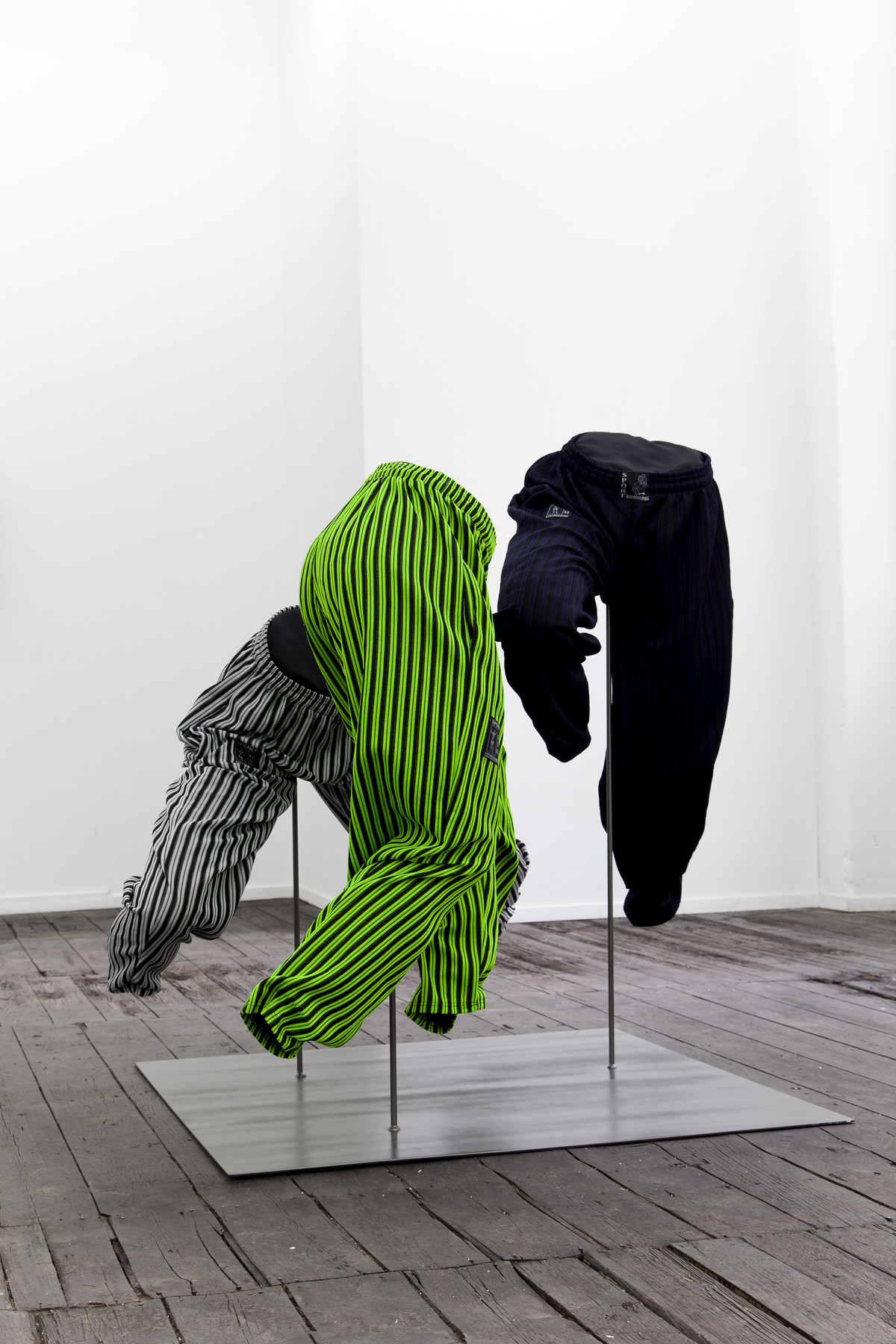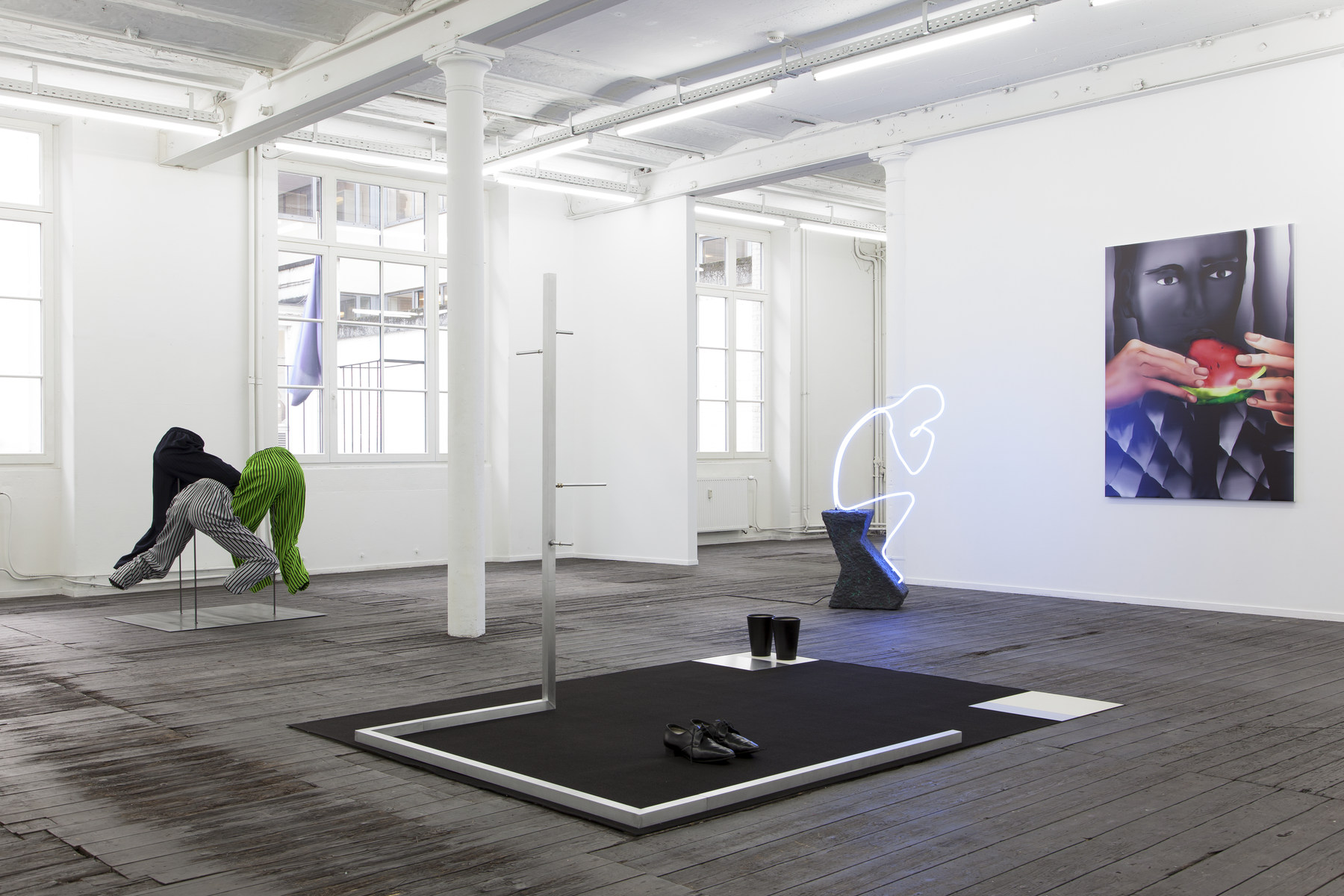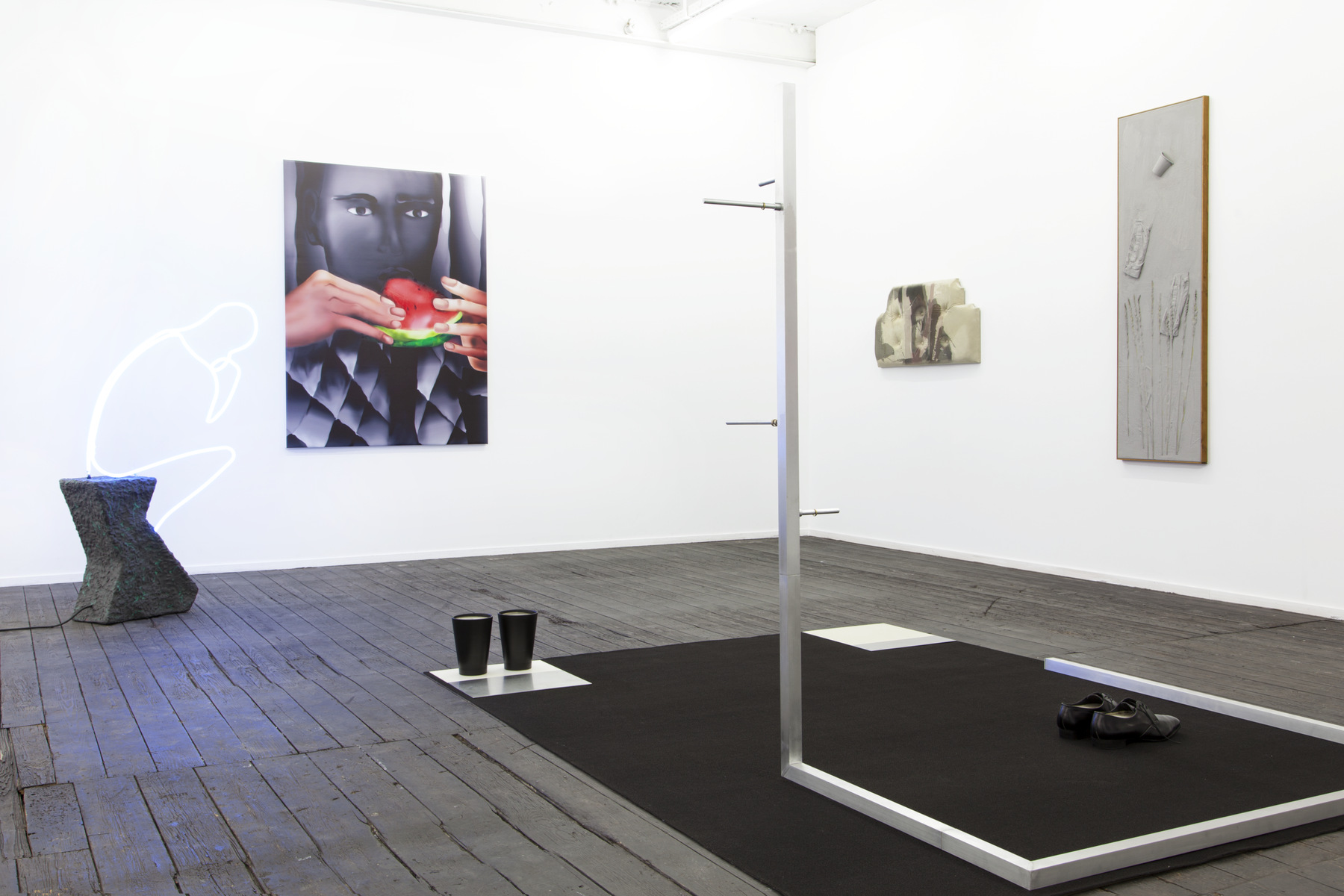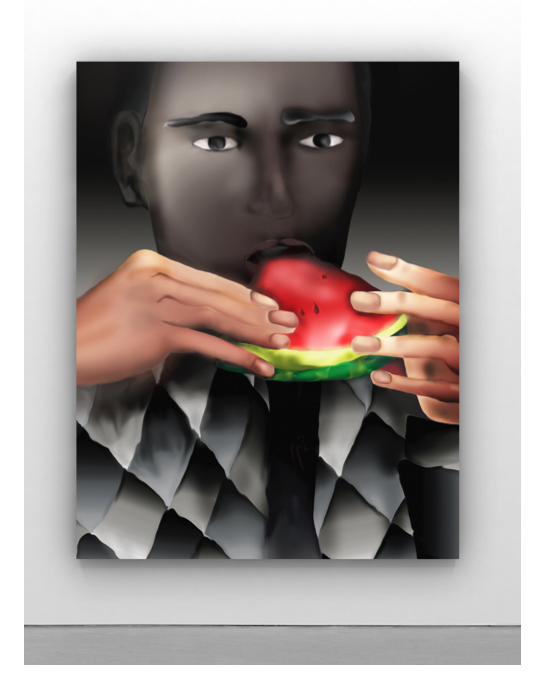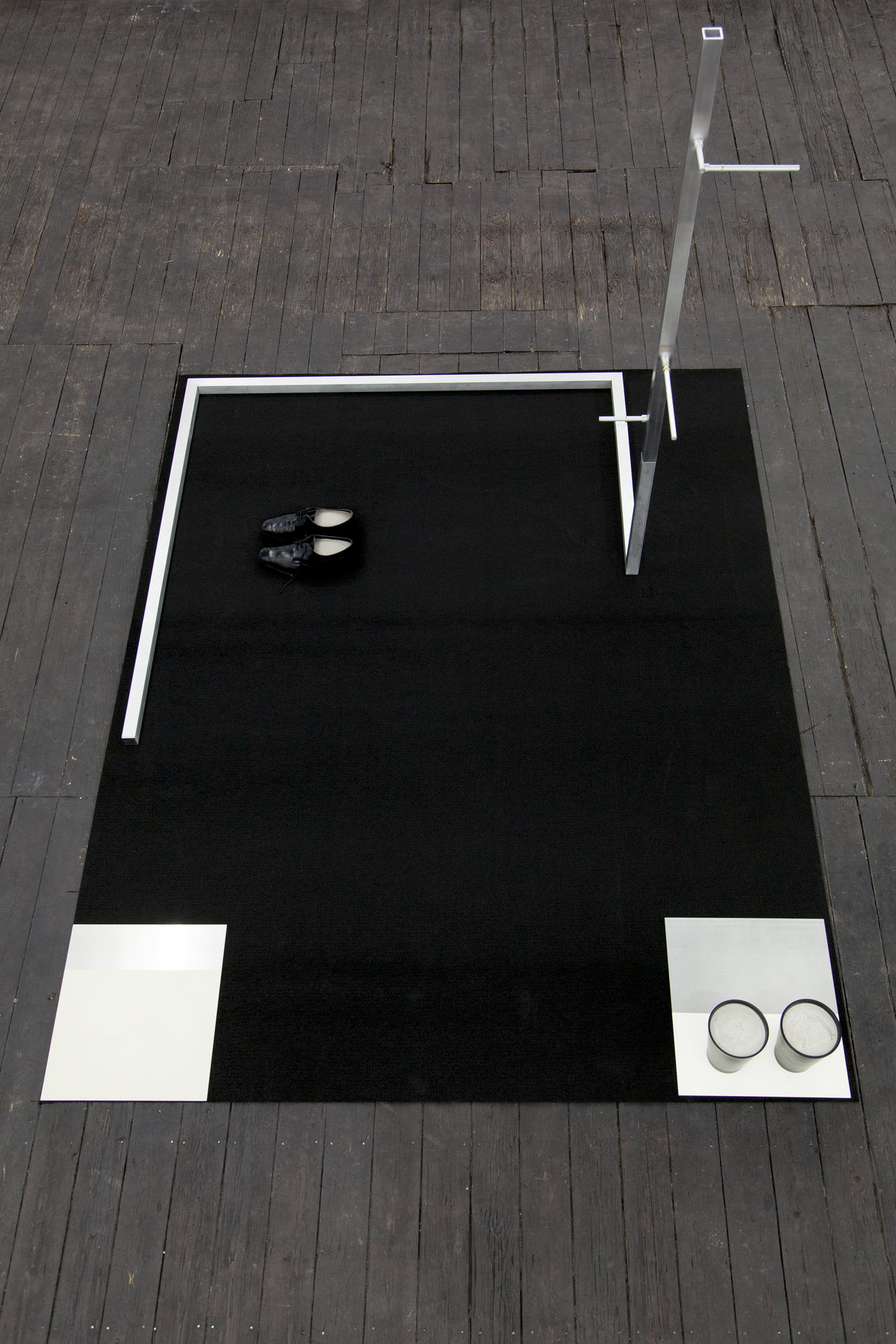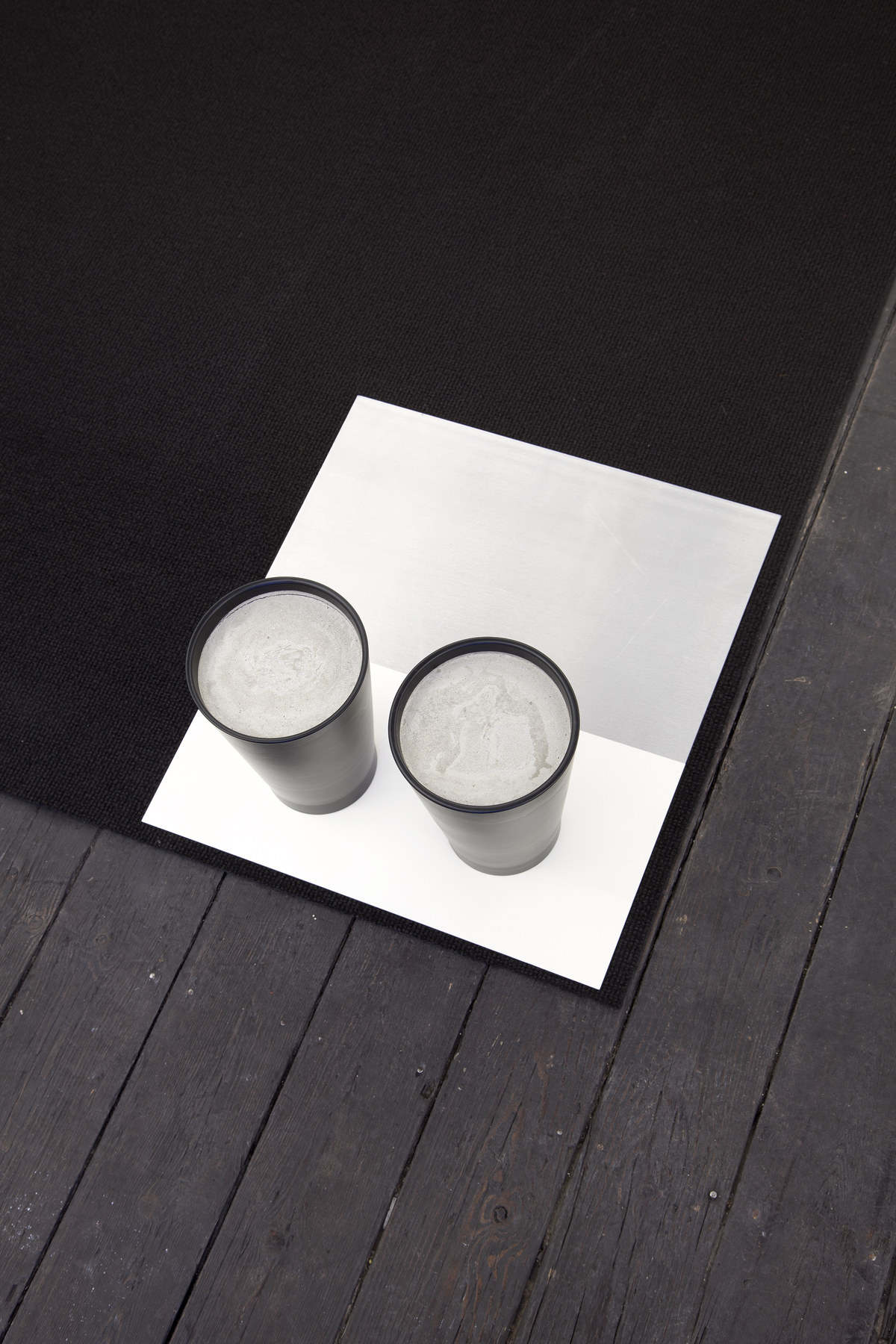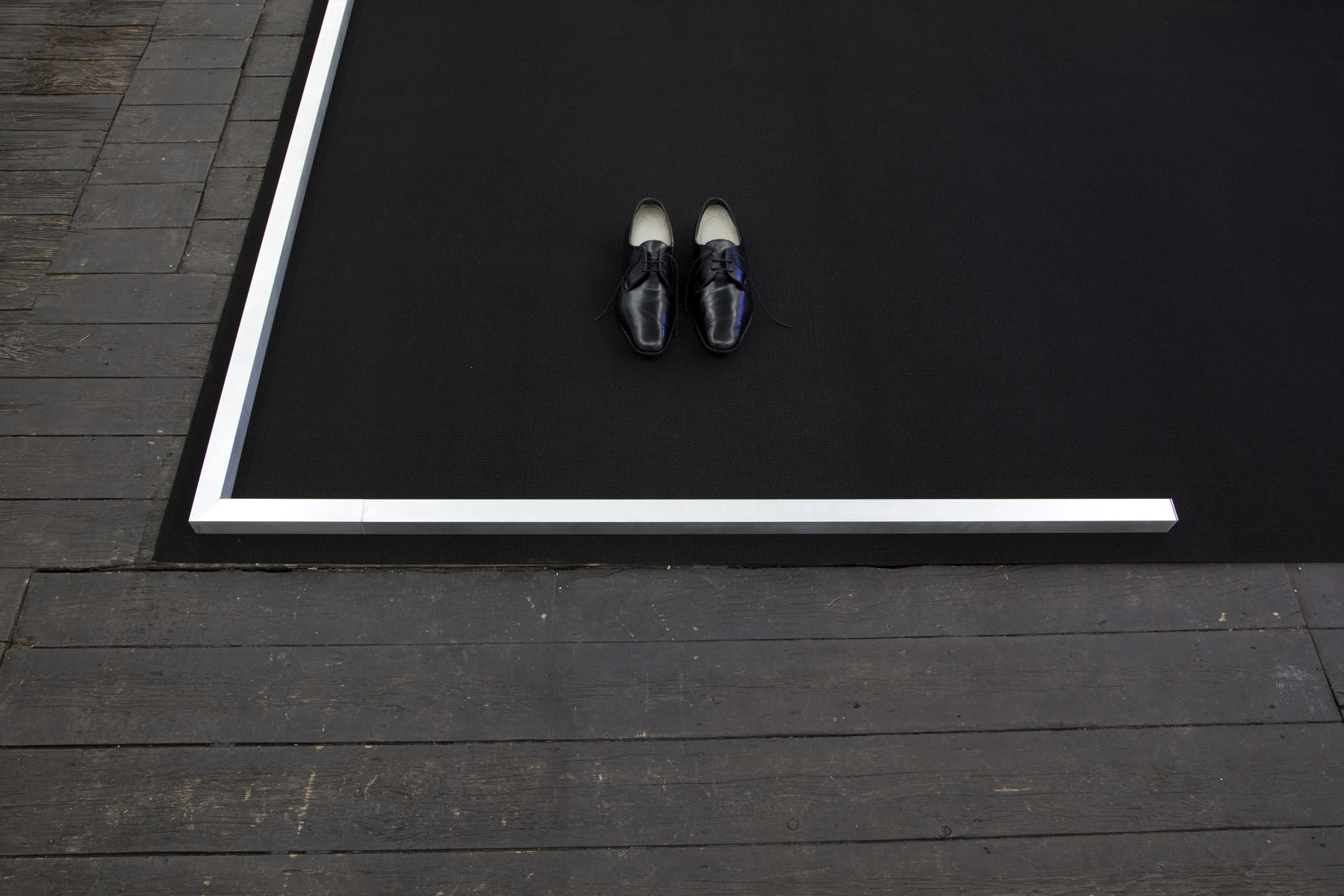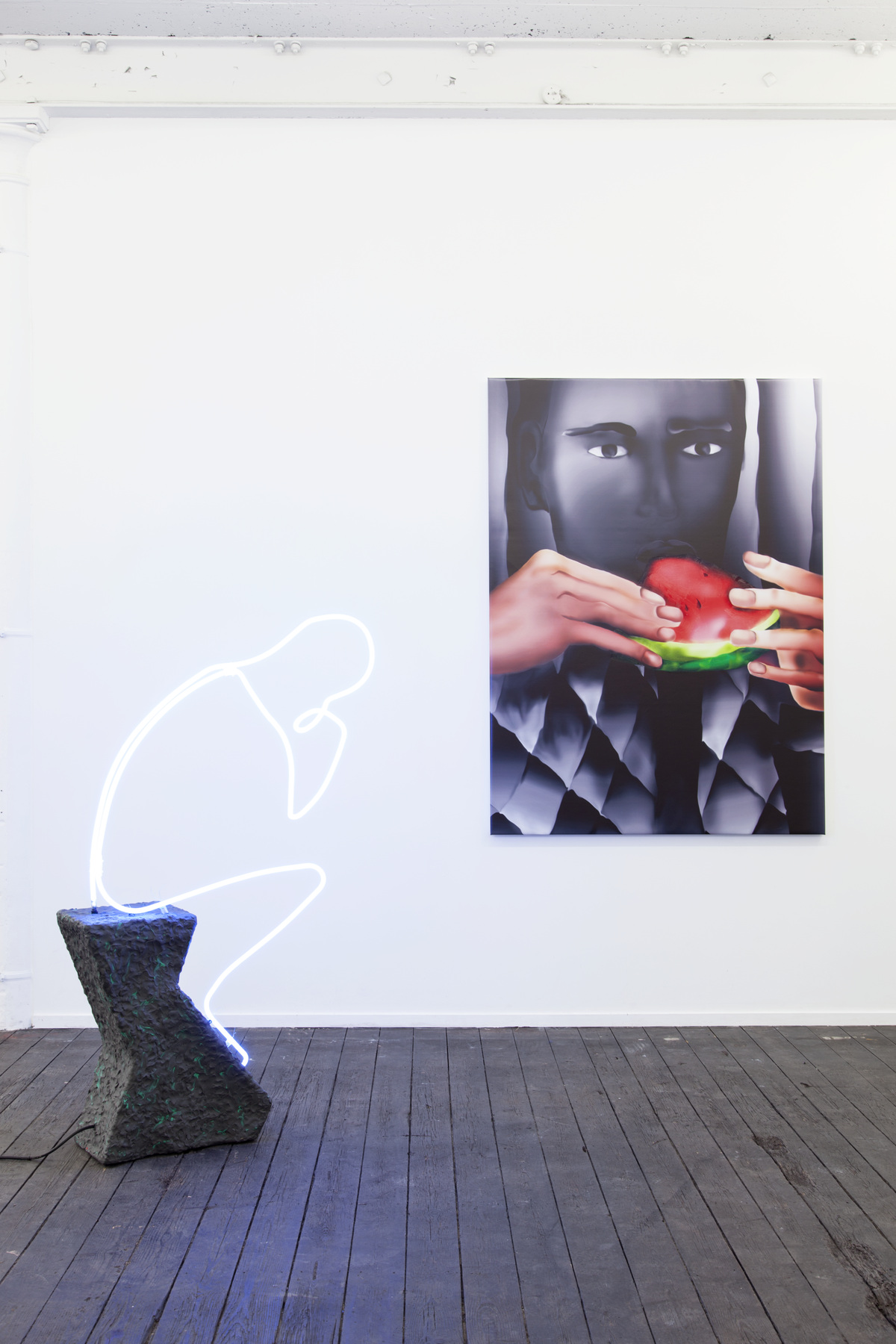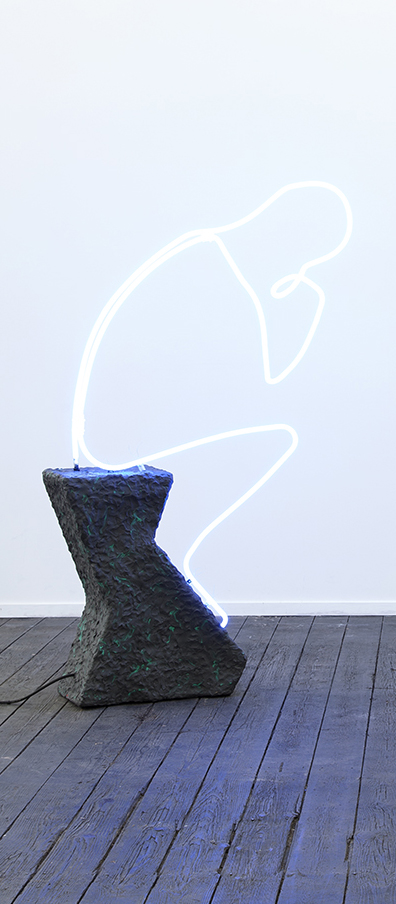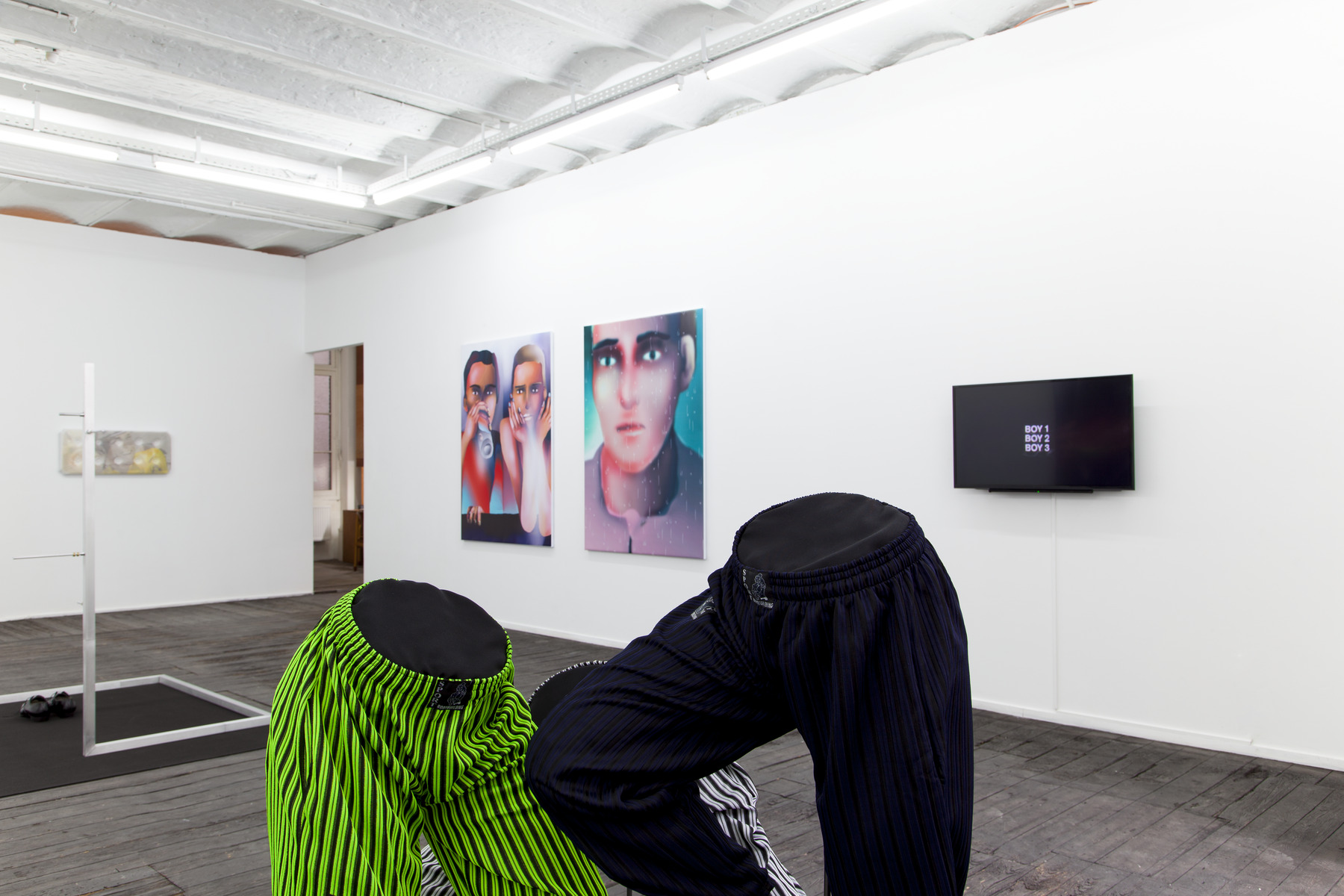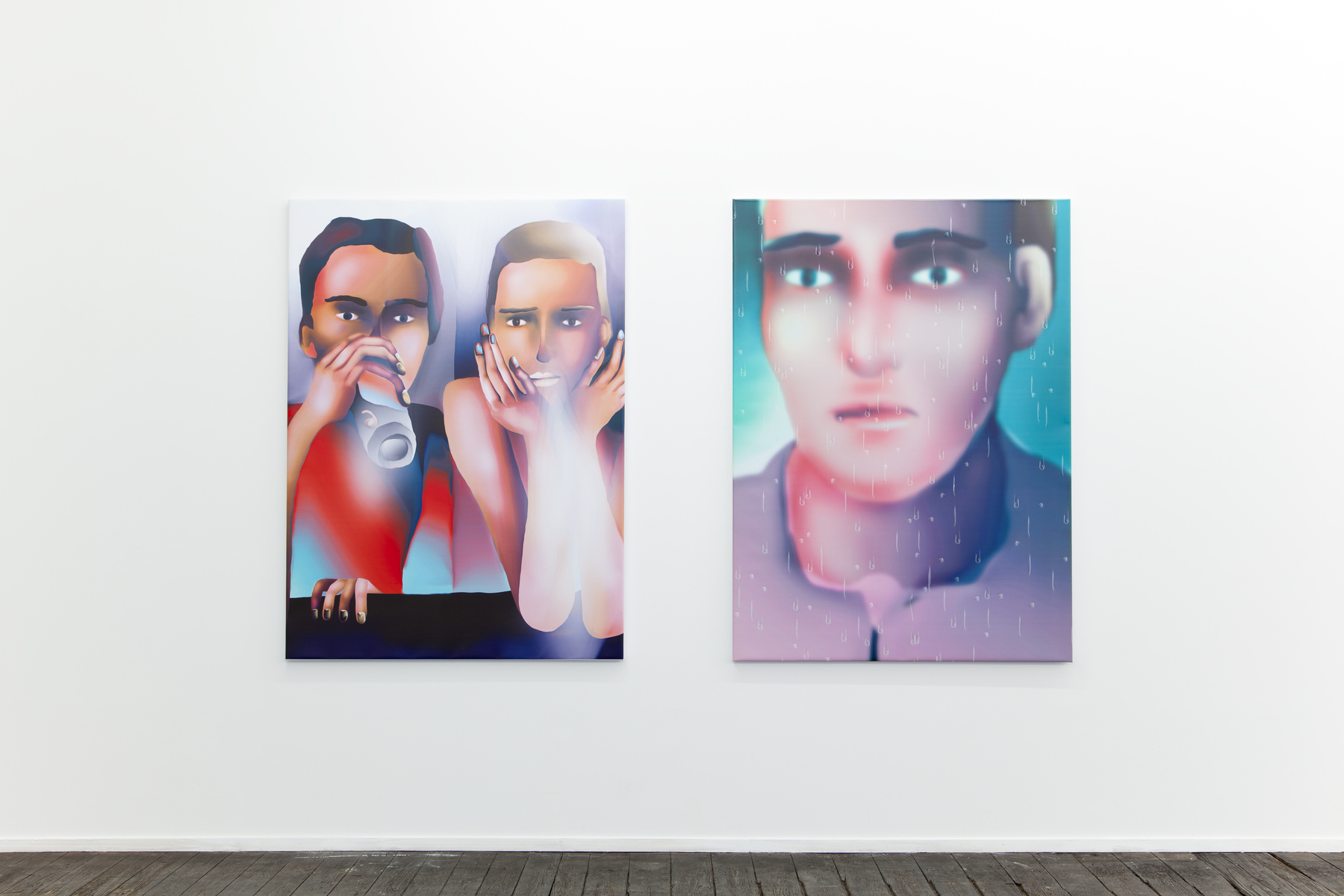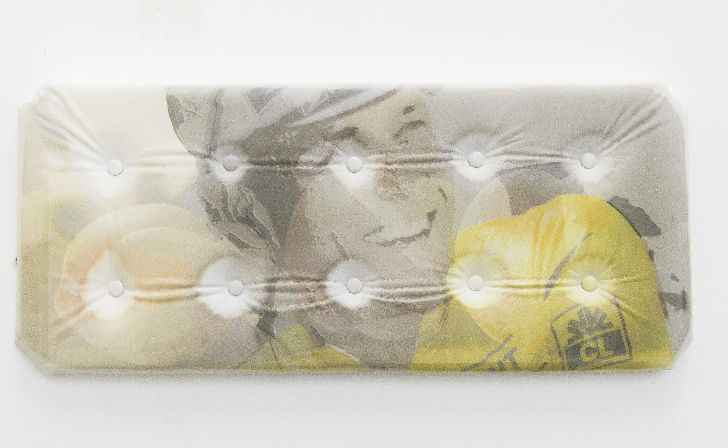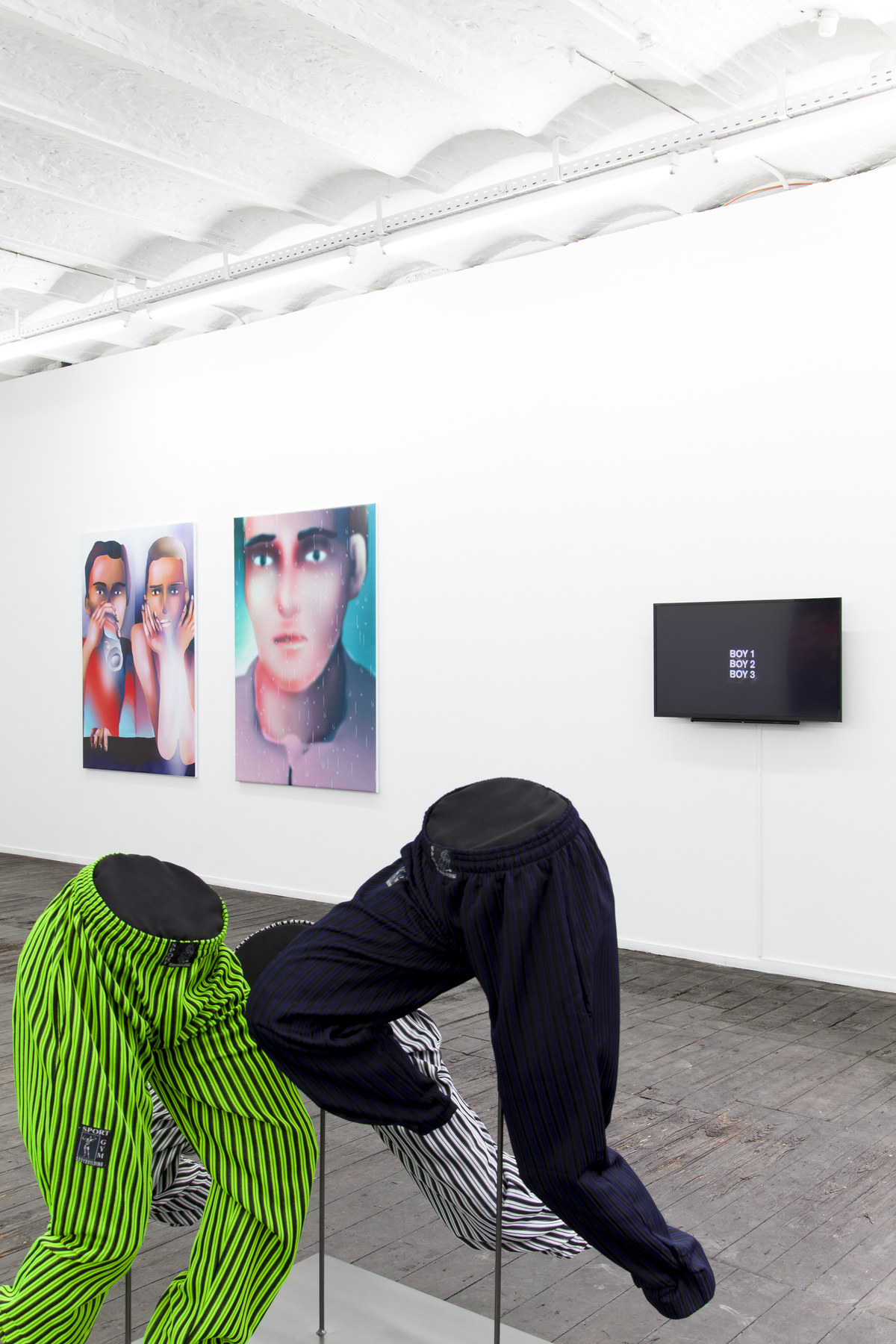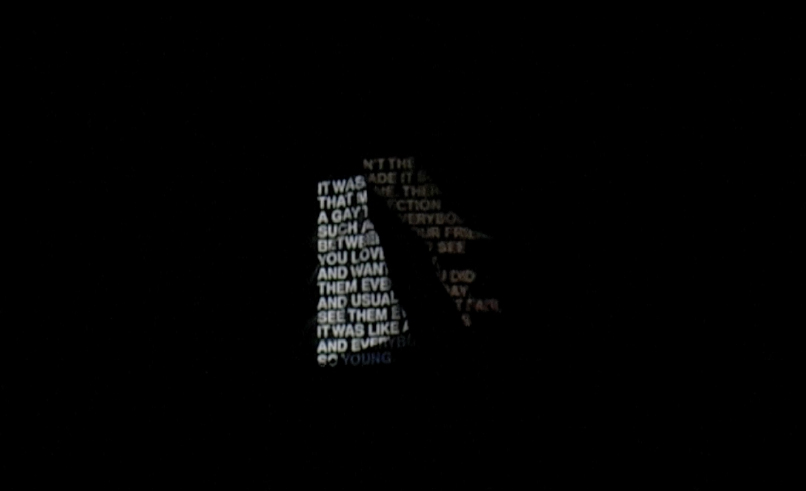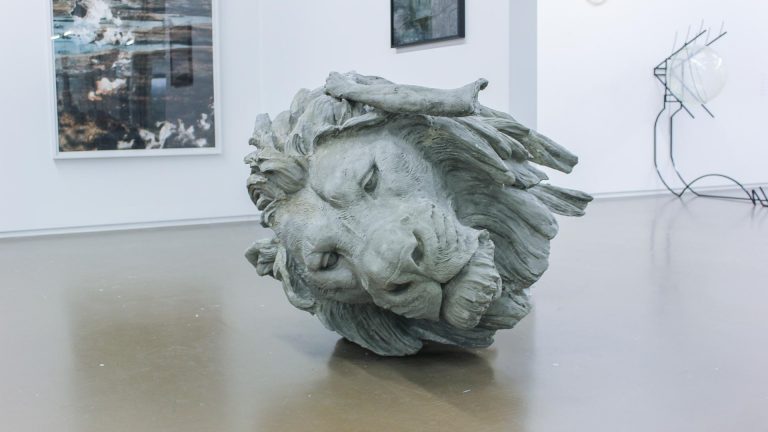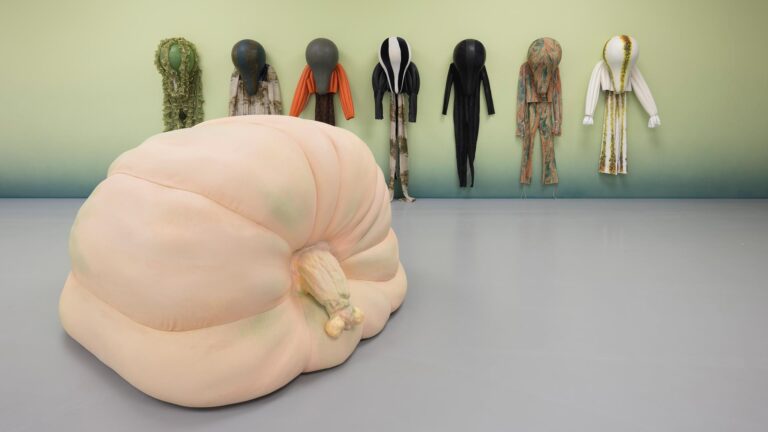Artists: Mikael Brkic, Zuzanna Czebatul, Louisa Gagliardi, Alex Ito, Tobias Kaspar, Lindsay Lawson, Isaac Lythgoe
Exhibition title: A PERFECT LIE
Curated by: Domenico de Chirico
Venue: Jeanroch Dard, Brussels, Belgium
Date: December 11, 2015 – January 23, 2016
Photography: Ludovic Beillard, images copyright and courtesy of the artists and Jeanroch Dard, Brussels
«La Città del Sole» (The City of the Sun), written in 1602 by the Italian Dominican friar Tommaso Campanella (1568-1639), is a philosophical work that outlines an ideal state characterised by communal possessions, in which the people follow the natural religion.
The inhabitants of the City of the Sun know nothing of the egotism, the horrors of war and hunger, and the violence that exist in the rest of the world. The city is organised along totally rational lines. It is supervised by a group of people called “officials”, who constantly make sure that no one can act unjustly towards their fellow citizens. There is an official for every virtue: liberality, magnanimity, abstinence, fortitude, aesthetics, justice, industriousness, truth, and so on. Furthermore, in this circular city, responsibility for bringing up children lies with all citizens, and everyone enjoys equal opportunities. The “solar citizens” also carefully follow dietary rules, whilst the officials have the most desirable food, but often decide to give their food to those who have distinguished themselves in contests with weapons or scientific debates.
The Dominican philosopher’s work is a precious testament to his passion and hope in the face of the tragic reality of his time. It is a work that perfectly captures the ambitions of seventeenth-century Europe’s sharpest minds and represents the great cultural, political and social ferment of those years; it is the concrete result of that period’s great aspiration for change and social renewal.
Alas, the City of the Sun is no utopia, as it lacks the first requisite of any utopia: the quality of atheism.
Furthermore, “as a model of a republic to imitate, the City of the Sun is a model not to imitate,” was the irreverent opinion of Alberto Savinio (1891-1952), the multi-faceted Italian intellectual who was always keen to unmask self-delusion and bourgeois certitudes, working in freedom, each artist has formally interpreted the concept of utopia.
Deriving from the Greek οὐ («not») and τόπος («place»), the word means “no place”. It was coined by Thomas More (London 1478 – 1535) and originally contained a play on words with the English homophone eutopia, deriving from the Greek εὖ («good» or “well”) and τόπος («place») and therefore meaning «good place». So the identical pronunciation of «utopia» and «eutopia» in English resulted in a double meaning: outopia (no place); eutopia (good place); utopia (beautiful, unattainable place).
Fit for the city in the relentless pursuit of top artistic forms.
«A Perfect Lie» by The Engine Room
Make me beautiful
Make me beautiful
A perfect soul
A perfect mind
A perfect face
A perfect lie
Make me beautiful
Make me beautiful
A perfect soul
A perfect mind
A perfect face
A perfect…
A perfect soul
A perfect mind
A perfect face
A perfect lie
OST of «Nip/Tuck», the American television «(medical) drama» series
created by Ryan Murphy in 2003 circa.
Louisa Gagliardi, marcel, 2015
Alex Ito, in Terms of Grace (Pillar and Ashes), 2015
Alex Ito, in Terms of Grace (Pillar and Ashes), 2015 (detail)
Alex Ito, in Terms of Grace (Pillar and Ashes), 2015 (detail)
Lindsay Lawson, der denker, 2015
Isaac Lythgoe, untitled, 2015
Mikael Brkic, the influencer, 2015
Louisa Gagliardi, philippe, 2015
Louisa Gagliardi, adam & lio, 2015
Isaac Lythgoe, untitled, 2015
Zuzanna Czebatul, Tristan, Kewin, Joss, 2015
Tobias Kaspar, boarding school, 2015

